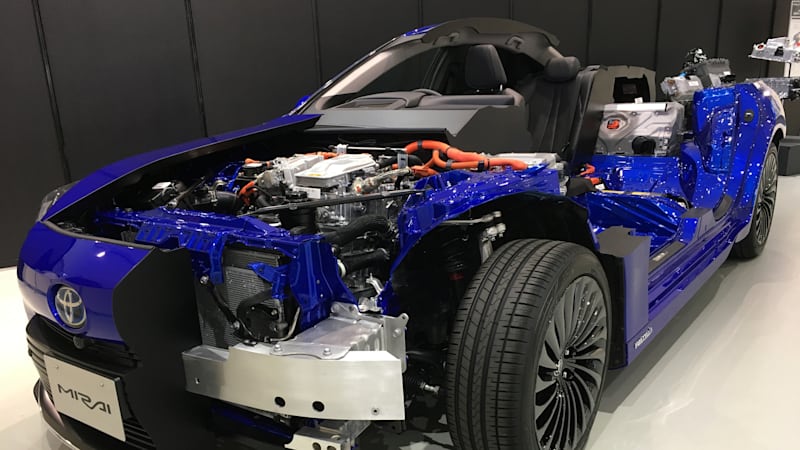TOKYO – Toyota Motor Corp. said Friday it has developed a packaged fuel cell system module as it hopes to expand the use and accessibility of the zero-emission technology amid the industry’s shift to electric vehicles (EVs).
The world’s largest automaker, which launched a revamped Mirai in December, has failed to persuade drivers for fuel cell vehicles (FCV).
The FCV segment remains a niche technology despite the support of the Japanese government, due to concerns about the lack of fuel stations, resale values and the risk of hydrogen explosions.
The new fuel cell battery system, which has been offered in separate parts, will be available in a compactly packaged module to be used as a stationary power generator or in trucks, buses, trains and ships, the company said Friday.
Toyota said it plans to sell the module to other companies in the spring of 2021 or later, but has not disclosed details of its price or sales target.
“Toyota has taken several initiatives to create a hydrogen society,” the Japanese company said in a statement.
“These experiences have taught the company that many companies involved in FC products in a variety of industries are looking for FC systems that can be easily adapted to their own product.”
The automaker said it plans to offer horizontally and vertically packaged models weighing around 240kg-250kg, each with a rated power of 60kW or 80kW.
These module models can be combined to flexibly adapt to the output level and available installation space.
The module, which packs individual fuel cell system-related products from the updated Mirai car with improved performance, will be produced at Toyota’s Honsha plant in Aichi prefecture, a company spokesman said.
